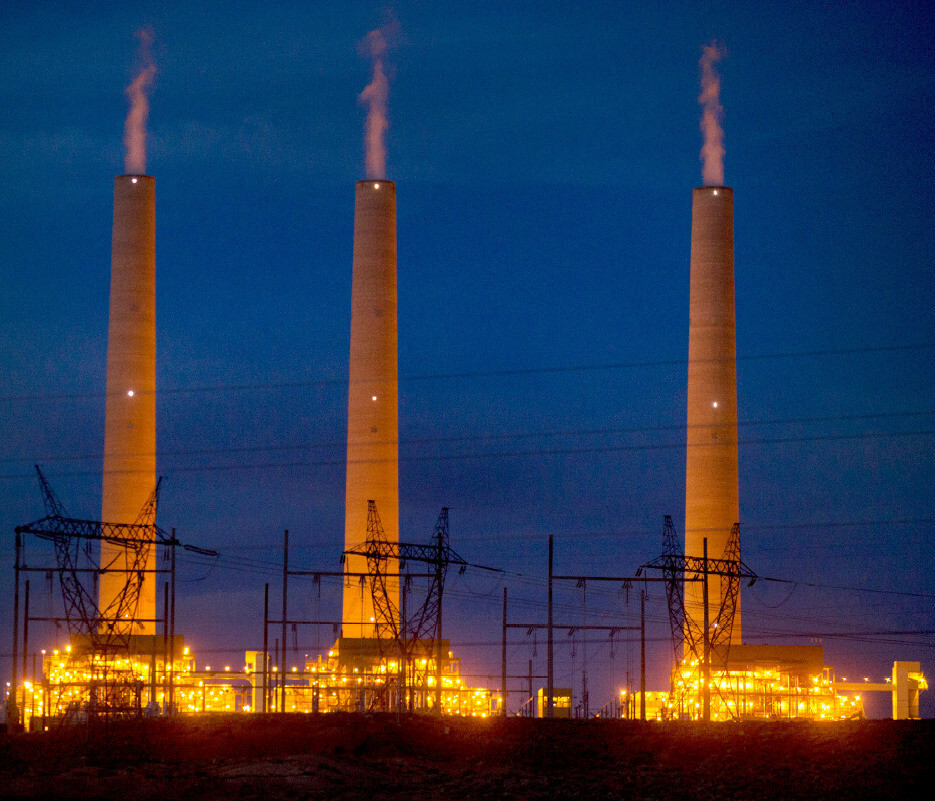hankyoreh
Links to other country sites 다른 나라 사이트 링크
- All
- National
- North Korea
- International
- Eco-Business
- Culture
- Editorial-Opinion
-
The Jeju
April 3rd Incident
As world moves away from coal, S. Korea moves in the opposite direction
Posted on : Mar.27,2020 16:21 KST Modified on : Mar.27,2020 16:21 KST
Korean financial institutions invested over US$10 billion in overseas coal projects

A coal-fired power plant in Arizona, USA, that was shut down in 2019. (provided by Greenpeace)

Editorial・opinion
![[Column] A year and a half of Yoon’s foreign, security policies has added to Korea risk [Column] A year and a half of Yoon’s foreign, security policies has added to Korea risk](https://flexible.img.hani.co.kr/flexible/normal/500/300/imgdb/original/2023/1226/1517035766989839.jpg) [Column] A year and a half of Yoon’s foreign, security policies has added to Korea risk
[Column] A year and a half of Yoon’s foreign, security policies has added to Korea risk![[Column] Korea’s diaspora discrimination [Column] Korea’s diaspora discrimination](https://flexible.img.hani.co.kr/flexible/normal/500/300/imgdb/original/2023/1225/3417034701814775.jpg) [Column] Korea’s diaspora discrimination
[Column] Korea’s diaspora discrimination- [Column] Climate hypocrisy by rich nations
- [Editorial] Korea’s Supreme Court once again rules Japanese firms must directly compensate forced labor victims
- [Editorial] With right-hand man as interim PPP leader, Yoon to solidify grip on party
- [Editorial] Pope’s OK’ing of blessings for same-sex couples should be wake-up call for Korea
- [Column] China’s insistence on “bright prospects” is stifling its economy
- [Column] Chun Doo-hwan and Roh Tae-woo, Yoon Suk-yeol and Han Dong-hoon
- [Column] Yoon’s oblivious diplomacy ended in expo rout – will it also fail to respond to N. Korea’s nukes?
- [Column] Yoon’s war on Korea’s free press earns him headlines in global news outlets
Most viewed articles
- 1Korea’s top constitutional expert predicts Yoon will be dismissed from office
- 2[Column] Giving Yoon the benefit of the doubt
- 3Korea’s steel industry could buckle under Trump’s tariff war
- 4Human rights watchdog draws criticism for recommending guarantees for Yoon’s right to defense
- 5‘Deeply mortified’: Moon apologizes to Koreans for enabling Yoon’s rise
- 6[Editorial] Choi’s ulterior motives for Seoul police chief appointment
- 7[Interview] South Korea’s Moon Jae-in has his regrets
- 8[Column] Trump may have won, but Yoon will lose
- 9[Editorial] Yoon’s prison politicking sounds a lot like a call to defy court
- 10How China used Korean pop culture for ‘cultural security,’ both before and after banning it